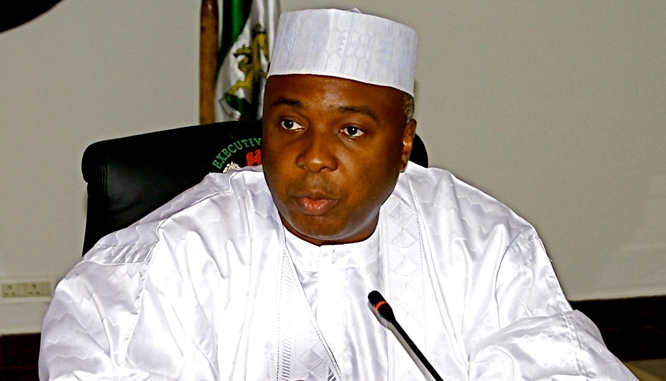
… 224 Bills, 1, 458 Motions, 21 Constitution Amendment Bills Passed The President of the Senate, Dr Abubakar Bukola Saraki, has declared that the legislature plays a critical role in democratic systems and remains the nucleus of democratic systems across the world. Saraki made declaration recently while speaking on the successes of the Eight Assembly in fast- tracking development and building stronger institutions in Nigeria.
He said the National Assembly’s roles in the democratic space is mainly to legislate for good governance, peace and welfare of the people while also serving as a check on the executive arm of government. “In the journey towards proper representative governance and democratic development, we have not failed in providing quality leadership and bringing governance closer to our people,” says Saraki. According to Saraki who doubles as President and head of the National Assembly, “the Eighth Assembly has remained the most audacious and the most visible from previous ones.
Having shown maturity in turning all the rancorous and disquiet atmosphere into that of peaceful co-existence in Nigeria. Thus, laying a good foundation for the Senate to face its core mandate is a positive score for democracy. This legislative intervention led to the passing of 224 Bills, the passing of 1, 458 Motions and the passing of 21 Constitution Amendment Bills.
Some of the major Economic Reform Bills include the Bills on Economic Intervention, Employment Generation, Ease of Doing Business and the Demutualization of the Nigerian Stock Exchange Bill and the Currency Conversion Freezing, others Amendment Bill. “Other notable ones are the Industrial Development (Income Tax Relief), the Value Added Tax Amendment Bill, the Stamp Duties Act Amendment Bill the Minimum Wage Act Amendment Bill the Avoidance of Double Taxation Bill and the Nigeria Immigration Act Amendment Bill among others.
Some of the other bills include: the Electronic Transaction Bill, the Bankruptcy and Insolvency Amendment Act Amendment Bill, the Federal Competition and Consumer Protection Commission Establishment Bill, the local Content bill”. The Senate president who has fallen out with the leadership of APC and has defected to PDP, believes that these bills represent a watershed in economic and business legislations in the country.
While the passage of the Petroleum Industry Governance Bill, which seeks to reform the country’s oil and gas industry is another serious issue that enabled the Upper Chamber to boost its image after decades of corruption and lack of transparency. Speaker Yakubu Dogara-led lower legislative chamber believes it has achieved many firsts as far as the business of lawmaking in the nation’s history is concerned. “We have made considerable efforts at promoting parliamentary openness and greater publication participation in governance and decision-making.
This promotes greater transparency and accountability on the part of parliaments through easing access to parliamentary information through electronic communication; and promoting direct citizen engagement”. He noted that there was a gap in public perception of the legislature and the reality of their functions as an arm of government. “Like with most parliaments around the world, public perception of the National Assembly has largely been negative based on misinformation about the function of parliament, emoluments of Members, scandals, etc.
It is against this background that the National Assembly recently hosted the Open Week to open National Assembly to the public. It has helped in broadening public understanding of legislative functions among others”. Similarly, the Executive Director of NILDS, Professor Ladi Hamalai, said through it activities, NILDS has systematically improved the technical capacity of legislative staff, committee secretaries and political aides to process appropriation bills and assist in policy oversight of the executive among others. Its programmes cover training for legislators and their staff, researches, bill drafting, analysis and scrutiny as well as information services.
Her words, “As a world class facility, NILDS has improved the capacity of Legislators and promotes best practices in legislative activities. This has served as a unique opportunity to drafters, legal officers, policy makers and those interested in the process of law making in Nigeria and the sub-region”.










